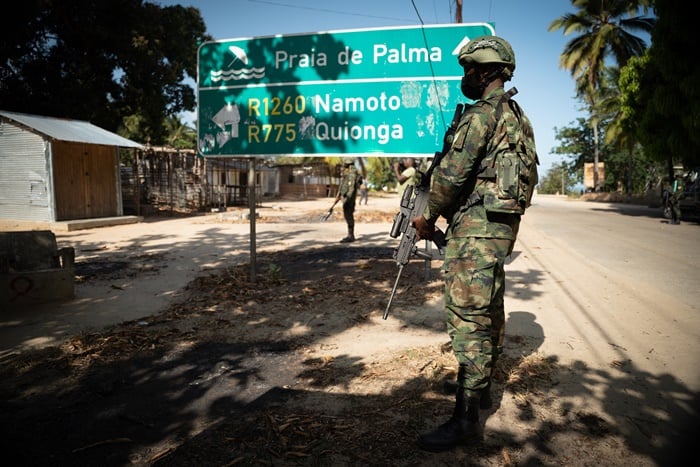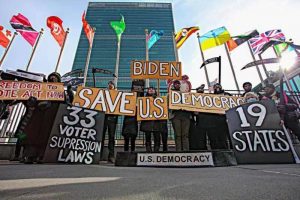Although South Africa has never experienced Islamic terrorist attacks, experts warn that the country is now the center of terrorist financing in Africa.
Jasmine Opperman, an expert on terrorism research, believes that South Africa is an “open target” where “Islamic financiers collect money in the country” which then ends up in the hands of terrorist groups.
According to her, South Africa is now internationally recognized as a hub for terrorist financing.
This is a serious charge against a country that, apart from occasional warnings issued by the US embassy, never appears on the radar of extremist activities worldwide.
Still, Opperman’s assessment is echoed by analysts across the continent, in Europe and the US.
Danger lights started flashing last year when the US government imposed sanctions on several South Africans accused of belonging to a cell of the Islamic State (IS).
This group apparently facilitated the transfer of money to IS branches across Africa.
According to the US Treasury, the group “provided technical, financial or material support to the terrorist group (Isis)”.
SA ‘too comfortable’
Some analysts believe that terrorist financing has flourished because South African authorities have become too comfortable with the absence of any visible Islamic activities in South Africa.
“I don’t think South Africa realized that. It was the Americans who said ‘something wrong is going on in the country’,” Hans-Jakob Schindler, director of the Counter Extremism Project working group, told AFP.
“The whole government is now under fire.” One of the biggest warnings about this was in March when the Financial Action Task Force (FATF), a Paris-based pressure group aimed at tackling money laundering and terrorist financing, blacklisted South Africa due to “gaps in the monitoring and stop illegal financial operations”.
Experts believe that a mixture of circumstances, including a functional financial system, certain freedoms, porous borders, corruption and criminality, have made South Africa the ideal breeding ground for terrorist financing.
Much of the money comes from organized crime syndicates that have been obtained through drug and precious mineral trade, as well as kidnapping for ransom. Extortion, including the use of fake Tinder profiles to attract victims, is also widespread in South Africa.
Organized crime is on the rise
Opperman says organized crime has also risen drastically, with cases of kidnapping increasing to 4,000 in July and September last year. “Organized crime itself is now common.”
To stay under the radar, this money is then transferred, among other things, to Islamic groups in Africa – usually in small amounts to avoid any suspicion. Sunday Times reported at the time after an investigation that between 2020 and 2021 approximately R6.3 million was transferred from South Africa to people in Kenya, Somalia, Nigeria and Bangladesh through the use of 57 000 unregistered SIM cards.
A system known as the “hawala system” is also popular. This system involves informal payments modeled on a trust agreement. It is also difficult for banks to trace these payments. However, some of the money is sent to the other countries with the genuine purpose of supporting family members. It is therefore unclear exactly how much money ends up in jihadists’ coffers.
However, Schindler believes that jihadists receive significant sums – probably far “more than they need”. Internal IS documents seen by experts indicate that 50% of money received from Africa is kept by IS in Somalia, while 25% is sent to IS groups in Mozambique and the Democratic Republic of Congo become
The rest is apparently sent to the central IS group. However, South Africa is now strengthening efforts to get off the FATF’s gray list.
Several pieces of legislation have been rushed through parliament in recent months, including legislation on combating terrorist financing.
On May 19, Minister in the Presidency Khumbudzo Ntshavheni told MPs that this office, together with other agencies, “will continue to develop and implement measures to ensure that South Africa’s territory is not used to commit acts of terrorism to plan, facilitate or execute. The same applies to the movement or storage of money to finance terrorism”.








